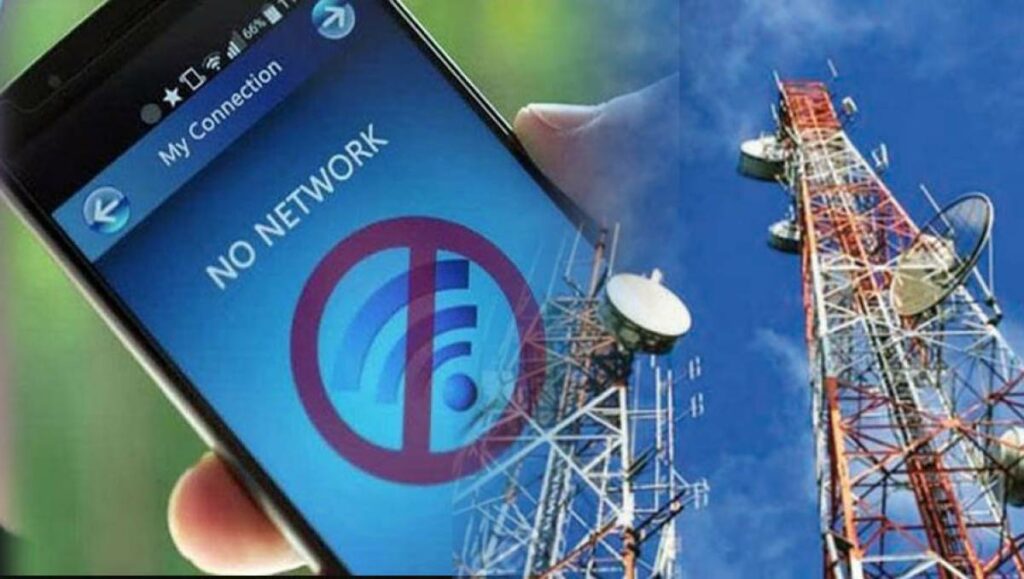Pakistan recently experienced a severe internet suspension due to the arrest of Imran Khan, the leader of the Pakistan Tehreek-i-Insaf (PTI) party. The resulting data blackout had a profound impact on various sectors, causing activities to come to a standstill and disrupting the lives of countless individuals. Daily-wage workers, particularly those relying on online platforms like Bykea, InDrive, and FoodPanda, were among the hardest hit. This article explores the consequences of internet suspension in Pakistan and highlights the urgent need to consider the effects of such decisions on vulnerable segments of society.
A Nation in Chaos
The abrupt data network suspension triggered a chain of events that plunged Pakistan into chaos. With online platforms ceasing their services, sectors dependent on digital technologies experienced an immediate disruption. This had severe consequences for workers, including delivery riders who relied on these platforms for their daily income. Unable to access their usual means of earning, they found themselves financially vulnerable and uncertain about their future.
Bykea Riders Bear the Brunt
Bykea, one of Pakistan’s largest automotive digital companies, employs a significant number of workers who depend on the availability of mobile data. Mohammad Hassan, a Bykea rider, experienced the adverse effects firsthand. With no rides available during the four-day blackout, he had to stay at home without any source of income. This compelled him to take out a loan to support his family, adding to his financial burdens. Similarly, Muhammad Muawiya, another Bykea rider, was unable to work or earn a single penny during the blackout, leaving him worried about providing for his family’s basic needs.
FoodPanda Riders Struggle
FoodPanda, a popular food delivery platform, also suffered the consequences of the internet suspension. Abdul Wahab, a FoodPanda rider, faced challenges fulfilling deliveries without internet access. He had to rely on finding Wi-Fi connections at restaurants to complete his orders, but this often led to additional complications. Dropping deliveries at the exact location became problematic, as he had to locate a Wi-Fi spot to complete the transaction, resulting in delays and decreased efficiency. The reduced number of deliveries impacted the earnings of riders like Wahab.
The Economic Toll
The data blackout caused significant financial losses for Pakistan. According to Netblocks, the disruption resulted in a staggering loss of $53 million (approximately Rs 9 billion). The suspension of services from online platforms like Bykea, InDrive, and FoodPanda, among others, affected not only the employees but also the overall economy. The inability of workers to earn a livelihood during this period created a ripple effect, contributing to the economic downturn and exacerbating the financial hardships faced by many.
The Digital Rights Dilemma
Pakistan’s record on digital freedom has consistently drawn concerns. Organizations like Freedom House have repeatedly highlighted the country’s restrictive practices that curtail internet freedom. The recent internet suspension serves as another example of the challenges faced by individuals in exercising their digital rights. Ali, a customer facilitator at InDrive, raises concerns about the slow internet speed in his area, exacerbated by frequent electricity breakdowns. The interruption of services during load-shedding hours amplifies the difficulties faced by users, hindering their ability to access essential online platforms.
A Call for Consideration
The recent internet blackout has revealed the vulnerability of daily-wage earners and the adverse consequences of abrupt decisions on their lives. The authorities must recognize the critical role played by online platforms in supporting livelihoods and consider the impact of their actions on the masses. Measures should be implemented to ensure the continuity of essential services, even in times of political turmoil, to safeguard the well-being and economic stability of the most vulnerable members of society.
The internet suspension in Pakistan highlighted the immediate challenges faced by workers and raised broader concerns about the state of digital freedom in the country. Pakistan’s classification as “Not Free” in terms of digital space by organizations like Freedom House underscores the ongoing curtailment of internet access and the restrictions placed on individuals’ online activities. The recent blackout served as a stark reminder of the need for a more inclusive and rights-based approach to internet governance, where the impact on livelihoods and fundamental rights is carefully considered before implementing such disruptive measures.
The internet suspension in Pakistan following the arrest of Imran Khan resulted in significant disruptions to various sectors, particularly those reliant on online platforms. Daily-wage workers, such as delivery riders, faced dire financial consequences, being unable to earn their livelihoods during the blackout. The economic toll on the country was substantial, underlining the need for comprehensive assessments of the potential impacts of such decisions. Safeguarding the digital rights and welfare of individuals in times of political upheaval is crucial to preserving social stability and mitigating the adverse effects on vulnerable communities.
Read More:





 Arslan Ash: The Undisputed Champion Beats Knee To Win Combo Breaker Championship
Arslan Ash: The Undisputed Champion Beats Knee To Win Combo Breaker Championship